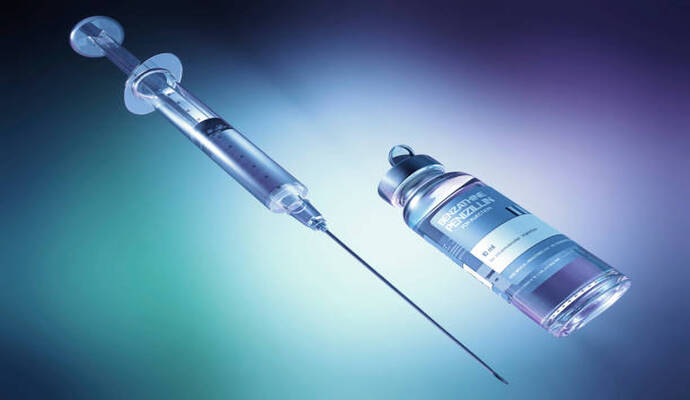Syphilis Rates Continue to Rise as Penicillin Availability Falls
Recent alerts from the FDA have identified a shortage of penicillin injections, causing alarm as syphilis rates continue to rise across the United States.

Source: Getty Images
- In April, the United States Food and Drug Administration (USFDA) announced a shortage of injectable penicillin, penicillin G benzathine, adding to the never-ending list of medications with supply chain issues. Beyond the standard impacts of a drug shortage, rising rates of syphilis, a sexually transmitted infection (STI) commonly treated with penicillin, have further strained the supply chain and patient care.
According to the FDA drug shortages list, as of April 26, 2023, there are shortages on the following items manufactured by Pfizer Pharmaceuticals:
- Bicillin L-A Pediatric 600,000 units/mL prefilled syringe
- Bicillin L-A 1.2 million units/2 mL prefilled syringe
- Bicillin L-A 2.4 million units/4 mL prefilled syringe
The shortages on each item are expected to recover in the last quarter of 2023. Although adult syringes are expected to have another delivery in May 2023, no information is available on the next shipment of pediatric syringes.
The American Society of Health-System Pharmacists (ASHP) notes that Pfizer is the exclusive supplier of this injectable medication. However, the company cannot keep up with the increased demand for the drug.
The increased demand correlates with rising rates of syphilis, as reported by multiple news outlets and healthcare organizations. A news release by the CDC notes that syphilis rates in the US increased by 32% between 2020 and 2021. Additionally, insights from an article published in JAMA Dermatology report that between 2001 and 2019, syphilis rates increased by over five times.
Based on these increased rates, the US Preventative Services Task Force (USPSTF) recommends syphilis screenings for anyone sexually active, including asymptomatic individuals, nonpregnant adolescents, and nonpregnant adults.
The USPSTF also notes that the ideal treatment for uncomplicated syphilis in an adult is a single injection of 2.4 million units of bicllin L-A. However, patients allergic to penicillin may be prescribed a two-week course of 100 mg of doxycycline twice daily.
Although most cases of syphilis can be easily managed using antibiotics, complicated syphilis can infect the nervous, visual, auditory, or vestibular systems. Additionally, untreated syphilis can enter the latent or tertiary stages, which can be complicated and fatal.
Understanding the risks associated with untreated syphilis and the ongoing shortages, the CDC has recommended that healthcare providers monitor the local supply of penicillin and assess availability. Additionally, communities are encouraged to monitor usage patterns, enforce risk reduction strategies for infectious diseases, and use other readily available medications when appropriate.
